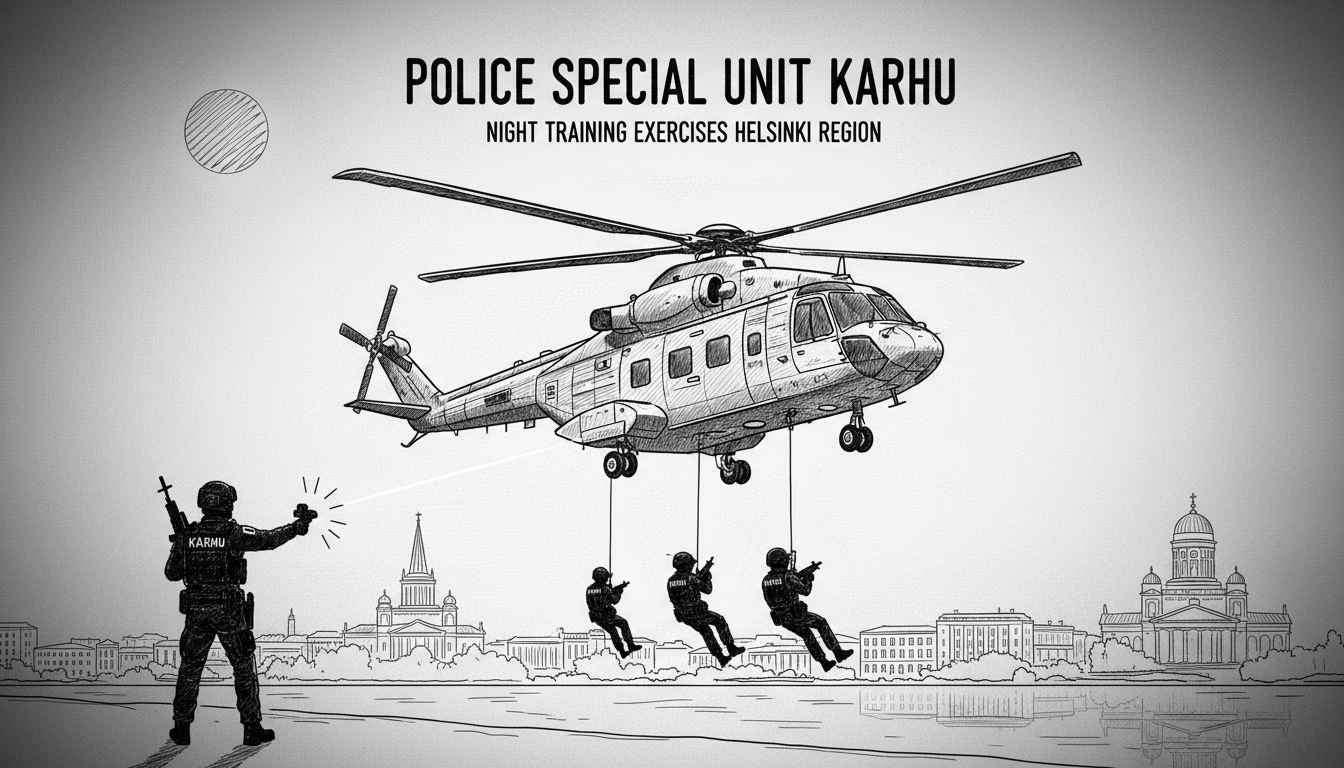Finland's elite police unit Karhu is conducting extensive nighttime training exercises across Helsinki and Kanta-Häme regions this November. The special operations force will train from November 10 to 13 between 5 PM and 11 PM each evening. Residents may notice increased helicopter activity during these hours.
The training involves multiple helicopters from the Utti Jaeger Regiment's helicopter battalion. These military aircraft will support ground operations throughout the exercise period. The collaboration brings together specialized units from different security organizations.
Participating forces include tactical medics, the Southeast Finland Border Guard's readiness team, and the Utti Jaeger Regiment. This multi-agency approach reflects Finland's comprehensive security strategy. The nation maintains high readiness levels through regular joint exercises.
Training focuses on developing nighttime operational capabilities in challenging conditions. Special emphasis is placed on inter-agency coordination and cooperation. Finland's security forces regularly conduct such exercises to maintain peak performance.
These drills occur as Finland adapts to its new NATO membership status. The country continues its tradition of maintaining robust defense capabilities while integrating with allied forces. Regular training ensures all units remain prepared for various scenarios.
Night operations present unique challenges for security forces. Limited visibility requires specialized equipment and tactics. The Karhu unit specifically trains for high-risk situations where standard police resources prove insufficient.
Finland's approach to special operations training emphasizes realism and inter-service cooperation. The inclusion of border guards and military units demonstrates the comprehensive nature of Finnish security planning. Such exercises help maintain the high standards expected of Nordic special forces.
Local residents should not be alarmed by the increased security presence. The police have notified the public in advance to prevent unnecessary concern. These are planned exercises that form part of Finland's regular security maintenance program.
International observers often note Finland's methodical approach to security preparedness. The country maintains its defense capabilities through consistent training and equipment modernization. These November exercises represent just one component of year-round readiness activities.
What does this mean for Finland's security posture? Regular, realistic training ensures that special units remain effective when called upon. The multi-agency approach reflects the complex nature of modern security challenges that require coordinated responses across different organizations.

